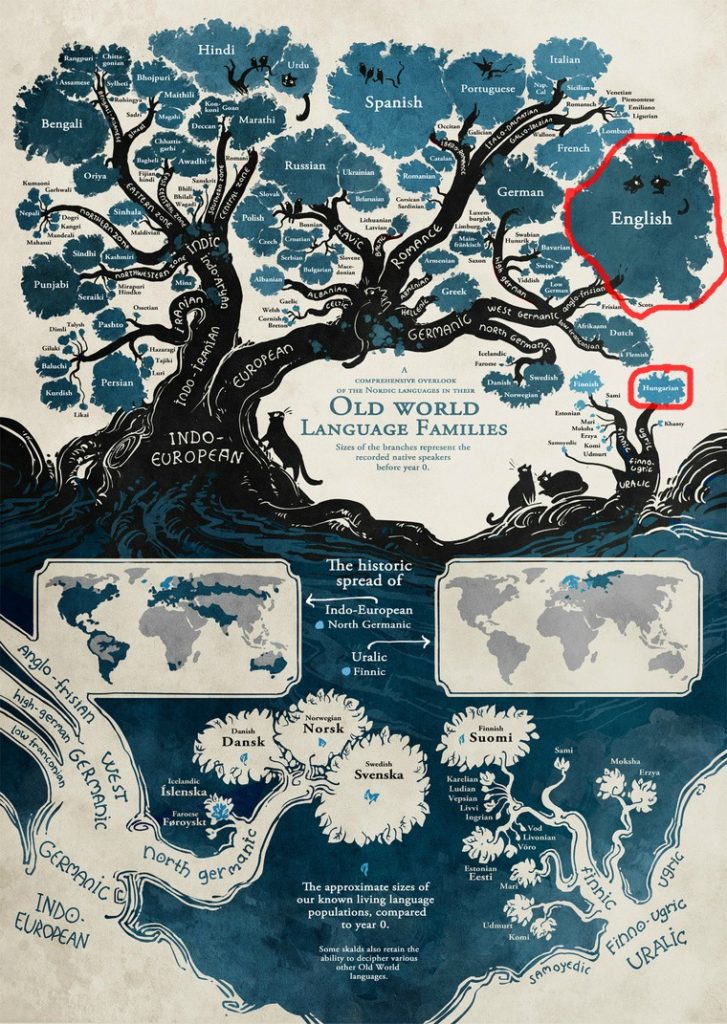Have you thought about learning Hungarian? Are you interested in this language? Are you fascinated by the Hungarian culture? Do you want to know how long will it exactly take to learn it? This is a perfectly valid question, I understand your dilemma. You are only human, after all, and you want to know if your efforts will pay.
Learning a new skill: it’s all about you
Learning a new skill usually takes time. But how much time does it take exactly? Noone can tell for sure because there is a human factor in this question that always changes: it depends on you. You, the person who wants to learn the new skill are the most important factor that determines how much time you will need.
How high is that mountain you are willing to climb? For some, climbing hills is enough. Other people will go for the Everest. Which category do you fall under?

What about running? Do you prefer running shorter distances and fast, or do you go for the marathon?
These are the questions you should think about when you want to assess whether learning Hungarian is the right thing for you. There is no such thing as a universal measure of difficulty, as you, your way of learning can change everything.
Learning Hungarian fast: it’s all up to you
Are you an experienced language learner? If you are, then the amount of time in which you can reach real results shortens. Will you come to Hungary? Can you practice with native speakers? If you do, you will see results earlier.

Is this the first foreign language you want to learn? Do you come from a monolingual family? If you do, it will take more effort to reach your goals, but they are reachable, I assure you.
How difficult is to learn Hungarian?
Hungarian belongs to the Uralic language family branch, which means that it represents an island in the sea of Indo-European languages spoken in Europe. Its closest relatives are Khanty and Mansi, spoken in Western Siberia. If you take a look at the map, you can see that Hungary is quite far away from Siberia. If your native language is of Indo-European origin, it means that the linguistic distance you will have to cover is farther than if you learned another Indo-European language, for example, German.
 This might scare you, but, as I have said, it all depends on you. The mountain is there to climb it, and it is climbable, as many people have already done so. Hungarian is learnable, and you can do it if you really want to.
This might scare you, but, as I have said, it all depends on you. The mountain is there to climb it, and it is climbable, as many people have already done so. Hungarian is learnable, and you can do it if you really want to.
So, how long does it take to learn Hungarian?
I have stated that it depends on the ever-changing human factor, namely you. Fortunately, there is a study led by The Foreign Service Institute (FSI), and this Institute has published a list to show approximately how much time you will need to learn a foreign language if you are an English-speaker.

This study divides the languages that are spoken all over the world into 5 categories. In the 1st category, there are the easiest languages to learn. For an average language learner, it takes 23-24 weeks (575-600 hours) to learn them. These languages are closely related to English, with similar vocabulary and grammar. These are some examples from the easiest category: Afrikaans, Danish, Dutch, French, Italian, Norwegian, Portuguese, Romanian, Spanish and Swedish.
In the 2nd category, you find only one language (German) that is quite similar to English, and it takes 30 weeks (750 hours) to learn it.
Languages with linguistic and/or cultural differences from English fall in the 3rd category, and it takes 36 weeks (900 hours) to learn them. These languages are Indonesian, Malaysian and Swahili.
The 4th category is interesting because it includes Hungarian. The description for this group states that these are the languages with significant linguistic and/or cultural differences from English. According to this study, it takes 44 weeks (1100 hours) to learn them. Hungarian is in this category with the following languages: Albanian, Amharic, Armenian, Azerbaijani, Bengali, Bosnian, Bulgarian, Burmese, Croatian, Czech, Estonian, Finnish, Georgian, Greek, Hebrew, Hindi, Icelandic, Khmer, Lao, Latvian, etc. Hungarian is marked with a star, which means that it is more difficult for a native English speaker to learn it than other languages from this category.
There is a 5th category, which includes languages that are exceptionally difficult for native English speakers. It takes 88 weeks (2200 hours) to learn them. These languages are Arabic, Cantonese (Chinese), Mandarin (Chinese), Japanese and Korean.
According to this study, from all the languages in the world, Hungarian isn’t the most difficult one to learn, but it is quite close to the top. From 5 categories it falls in the 4th most difficult, and for the average language learner, it takes about 1100 hours to learn it.
How long does it take to learn Hungarian for you?
This is the question you should be asking. You are not average, but unique. The statistics from the Foreign Service Institute might have scared you, 1100 hours is a lot of time. Let me tell you a secret: the statistics don’t count the human factor. If you are willing to learn Hungarian because you feel that you should do it from inside your heart than you might reach your goal earlier.

If you look at those 1100 hours, you might see tedious, hard work in front of you, filled with grammar drills and declinations. It doesn’t have to be like this. You don’t have to spend all the 1100 hours with memorization, you can do fun things, too. You can shorten the time you spend studying by living in the language you learn, by living in Hungarian. By this I mean surrounding yourself with the Hungarian language, listening to Hungarian radio, watching Hungarian TV, reading Hungarian news portals. The best would be if you had a native Hungarian speaker around you to practice talking all the time.
To wrap it up: learning Hungarian is quite difficult, and it does take a lot of time, but it is perfectly achievable. How long does it take? It is all up to you.
If you liked this post, please, hit the like button, and don’t forget to share it with your friends! Thank you.








